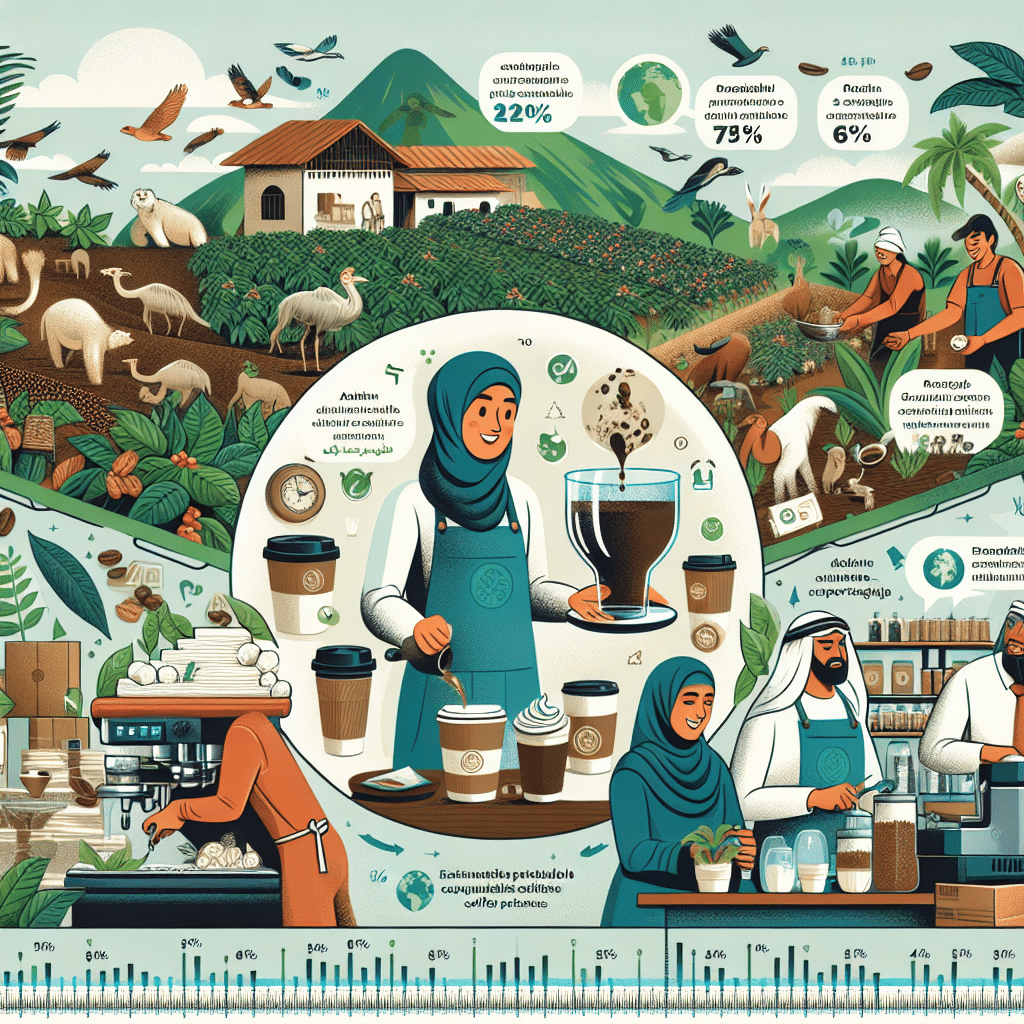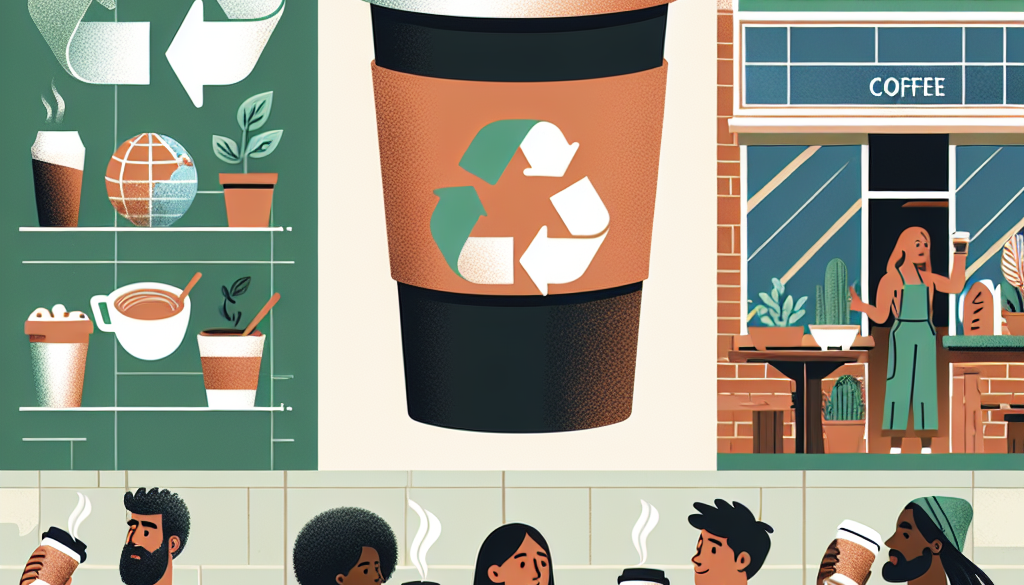How Eco-Conscious Practices are Shaping Coffee Consumption
-
Table of Contents
- Eco-Conscious Practices Revolutionizing Coffee Consumption
- The Rise of Sustainable Coffee Farming
- Eco-Friendly Packaging and Distribution
- Consumer Behavior and Eco-Conscious Choices
- Technological Innovations in Coffee Production
- Conclusion: The Future of Sustainable Coffee Consumption
- ETprotein: Complementing Your Eco-Conscious Lifestyle
Eco-Conscious Practices Revolutionizing Coffee Consumption

The coffee industry is undergoing a significant transformation as eco-conscious practices become increasingly important to consumers and businesses alike. With the growing awareness of environmental issues and the impact of agriculture on the planet, the way we grow, trade, consume, and dispose of coffee is changing. This article explores how sustainability is shaping the coffee sector and what this means for the future of our beloved morning brew.
The Rise of Sustainable Coffee Farming
Sustainable coffee farming practices are at the forefront of the eco-conscious movement within the industry. These practices aim to reduce environmental impact, conserve biodiversity, and ensure the well-being of coffee farmers. Here are some key aspects:
- Shade-Grown Coffee: This method involves growing coffee plants under the canopy of trees, which helps preserve habitats for wildlife, reduces the need for chemical fertilizers, and improves soil health.
- Organic Farming: Organic coffee is grown without synthetic pesticides and fertilizers, reducing the harmful effects on the environment and producing healthier beans.
- Fair Trade Certification: Fair trade practices ensure that coffee farmers receive a fair price for their beans, promoting social sustainability and economic stability in coffee-growing communities.
- Water Conservation: Innovative irrigation techniques and wastewater management are being implemented to minimize water usage and pollution.
According to the Global Coffee Report, the demand for sustainable coffee is growing, with sales of certified sustainable coffee increasing by 41% from 2011 to 2016. This trend is expected to continue as more consumers seek out ethically sourced and environmentally friendly products.
Eco-Friendly Packaging and Distribution
The coffee industry is also focusing on reducing the environmental impact of packaging and distribution. Innovations in this area include:
- Biodegradable Packaging: Companies are developing coffee bags and pods made from materials that can decompose naturally, reducing landfill waste.
- Reusable Containers: Some coffee shops and brands encourage the use of reusable cups and containers, often offering discounts to customers who bring their own.
- Carbon-Neutral Shipping: Efforts to offset carbon emissions from transportation are becoming more common, with some companies investing in renewable energy or reforestation projects.
Statistics from the Specialty Coffee Association indicate that the use of sustainable packaging in the coffee industry has seen a significant uptick, with a reported 30% of coffee roasters now offering packaging that is either recyclable, compostable, or made from renewable materials.
Consumer Behavior and Eco-Conscious Choices
Consumer behavior plays a pivotal role in driving the coffee industry towards more sustainable practices. Here’s how consumers are making a difference:
- Preference for Sustainable Brands: A growing number of consumers are choosing brands that prioritize sustainability, influencing market trends and encouraging more companies to adopt eco-friendly practices.
- Reduced Waste: Coffee drinkers are becoming more mindful of waste, with many opting for reusable filters, cups, and straws instead of disposable ones.
- Support for Local Roasters: By purchasing from local roasters, consumers can reduce the carbon footprint associated with long-distance transportation and support small businesses that often follow sustainable practices.
A survey by the National Coffee Association USA revealed that 66% of American coffee drinkers are concerned about the environmental impact of their coffee consumption, highlighting the significant influence of consumer awareness on the industry.
Technological Innovations in Coffee Production
Technology is playing a crucial role in advancing eco-conscious practices in coffee production. Innovations include:
- Precision Agriculture: Using data analytics and GPS technology, farmers can optimize the use of resources like water and fertilizers, reducing waste and environmental impact.
- Renewable Energy: Solar and wind power are being used to operate machinery and process coffee beans, lowering the carbon footprint of production.
- Blockchain for Traceability: Blockchain technology is being utilized to create transparent supply chains, allowing consumers to trace their coffee back to its source and verify sustainable practices.
Research by the World Economic Forum indicates that the adoption of digital technologies in agriculture could increase crop yields by 30% and reduce water usage by up to 20%, demonstrating the potential for technology to enhance sustainability in coffee production.
Conclusion: The Future of Sustainable Coffee Consumption
The coffee industry is at a crossroads, with eco-conscious practices becoming increasingly vital to its future. From sustainable farming and eco-friendly packaging to consumer choices and technological advancements, every aspect of coffee consumption is being influenced by the drive for sustainability. As the industry continues to evolve, we can expect to see a greater emphasis on environmental responsibility, ethical sourcing, and innovative solutions that benefit both the planet and coffee lovers around the world.
ETprotein: Complementing Your Eco-Conscious Lifestyle
For those who are passionate about sustainability and health, ETprotein offers a range of organic bulk vegan proteins that align with eco-conscious values. Whether you’re looking for plant-based protein options to complement your coffee routine or seeking high-quality ingredients for your nutritional products, ETprotein’s offerings are characterized by their neutral taste, non-GMO, allergen-free attributes, and high purity levels. Embrace a sustainable lifestyle with ETprotein’s products, and take a step towards a healthier planet and a healthier you.
About ETprotein:
ETprotein, a reputable protein and L-(+)-Ergothioneine (EGT) Chinese factory manufacturer and supplier, is renowned for producing, stocking, exporting, and delivering the highest quality organic bulk vegan proteins and L-(+)-Ergothioneine. They include Organic rice protein, clear rice protein, pea protein, clear pea protein, watermelon seed protein, pumpkin seed protein, sunflower seed protein, mung bean protein, peanut protein, and L-(+)-Ergothioneine EGT Pharmaceutical grade, L-(+)-Ergothioneine EGT food grade, L-(+)-Ergothioneine EGT cosmetic grade, L-(+)-Ergothioneine EGT reference grade and L-(+)-Ergothioneine EGT standard. Their offerings, characterized by a neutral taste, non-GMO, allergen-free attributes, with L-(+)-Ergothioneine purity over 98%, 99%, cater to a diverse range of industries. They serve nutraceutical, pharmaceutical, cosmeceutical, veterinary, as well as food and beverage finished product distributors, traders, and manufacturers across Europe, USA, Canada, Australia, Thailand, Japan, Korea, Brazil, and Chile, among others.
ETprotein specialization includes exporting and delivering tailor-made protein powder and finished nutritional supplements. Their extensive product range covers sectors like Food and Beverage, Sports Nutrition, Weight Management, Dietary Supplements, Health and Wellness Products, and Infant Formula, ensuring comprehensive solutions to meet all your protein needs.
As a trusted company by leading global food and beverage brands and Fortune 500 companies, ETprotein reinforces China’s reputation in the global arena. For more information or to sample their products, please contact them and email sales(at)ETprotein.com today.












